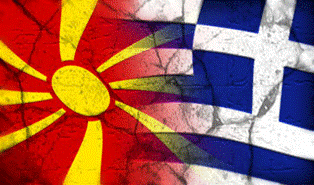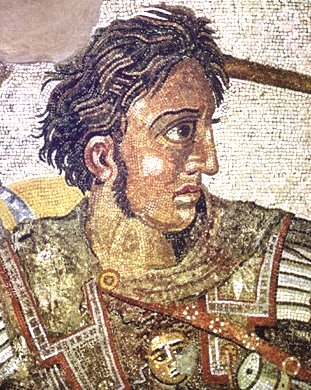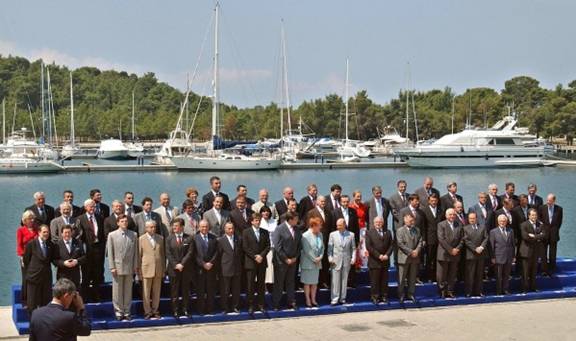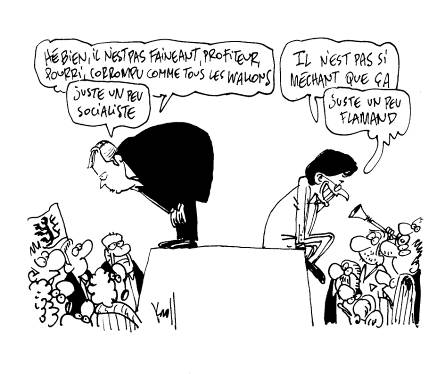Breaking the Macedonian deadlock - the mystery of Belgian politics and the enlargement debate in Brussels
Dear friends of ESI,
A matter of trust – a proposal for breaking the Macedonia deadlock
 |
 |
 |
|
Nikola Gruevski – Giorgos Papandreou |
||
A few weeks ago we made a simple proposal on our website how to break one of the most important deadlocks undermining the stabilisation of the Western Balkans and address the dispute between Greece and its northern neighbour, the Republic of Macedonia. This has triggered a lot of interest and debate in regional media.
The basic idea is simple. Although officials across the EU, and even some in Skopje, believe that the current Greek government of George Papandreou would like to see a solution to the name dispute - and although an intense effort of bilateral talks is currently under way – overall trust in the Greek political establishment outside of Greece remains limited.
Most politicians in Athens realise that they have a vital interest in Macedonia's stability. Athens is also in favour of Balkan enlargement. It does not want to be used by those in the EU who have an interest in stopping Balkan enlargement for good. And yet the Greek government is under serious domestic pressure to obtain a compromise on the name and it has committed itself to seek a change in the constitutional name of its neighbour.
 |
|
Front page of Dnevnik (18 June 2010) showing the headline of the proposal |
While most Europeans find the Greek position puzzling, if not irrational, hopes in Skopje that the EU will put pressure on Athens to change its mind are unrealistic. In fact, to those in EU capitals who prefer a slowing down of the enlargement process the fact that Macedonia, a Western Balkan front runner and candidate, is stuck is even welcome.
Leaders in Skopje realize that joining the EU will require a compromise on the name. It is clear that any constitutional change needs broad support in Skopje. There will almost certainly also be a referendum in Macedonia. Yet even those who might just be prepared to make a concession on the name of the country would do so only under the condition that it actually ensures the country's EU accession. To change the name for the mere promise of starting talks with an uncertain outcome at this moment is unlikely to be accepted.
Greece will only open the road to EU accession if Macedonia changes its constitution. And yet no Greek government can guarantee Skopje that any concession made today – to unlock the door to EU accession talks – will actually stick once a different Greek government comes to power in a few years time.
 |
|
One day soon his battles will be left to historians again … |
How can this circle be squared? It can be done through a constitutional amendment in Skopje that changes the name of the country today, allowing Athens to support the start of EU accession talks later this year, but that also foresees that the change will only enter into force on the day Macedonia actually joins the EU.
The constitutional change could be simple, a single paragraph that says something to the effect of:
"All references to the Republic of Macedonia in this constitution will be replaced by a reference to XX (a compromise name) on the day this country joins the European Union."
If for some reason Skopje never joins the EU, it will never have to change its name.
If future Greek governments (or other Balkan neighbours) find new reasons to block Macedonia's accession in the future (there are no less than 70 veto points where unanimity in the EU is required before a candidate actually joins the club) the name will not yet have changed prematurely.
On the other hand, the constitutional provision will guarantee that once Macedonia is a member, the name change will become effective immediately and automatically. It can also be written into Macedonia's accession treaty.
This solution would allow both countries and their leaders to claim a victory today. The government in Skopje will turn Greece into a genuine ally (based on mutual interest) to facilitate its timely accession. Athens can argue that it is only opening the path to accession in return for genuine and lasting constitutional change: something no previous Greek government has achieved.
What would make this deal even more attractive – and a referendum on the constitutional amendment even more likely to succeed in Skopje – would be a parallel Greek promise to allow Macedonia to join NATO under the name FYROM (the name under which Macedonia joined the UN) once the constitutional changes have been passed.
 |
|
Thessaloniki summit 2003 - when Greece was helping the Balkans |
This is still a difficult compromise for both countries. If it is adopted, however, it will end a major deadlock and send a tremendously beneficial signal to the whole of the Balkans.
Greece would be part of the solution in the region, not a source of problems. Macedonia could once again become a pioneer and leader helping the rest of the region, as it has done in the visa liberalisation process, and the first to begin full accession talks before Croatia joins the EU.
For more on this please go here. We are also interested in hearing your opinion on our Facebook page.
Understanding Belgium
 |
 |
 |
|
Bart de Wever – Brussels symbol Manneken Pis – Elio Di Rupo |
||
On 1 July Belgium, one of the EU's founding members and one of the richest countries in Europe today, assumed the rotating presidency of the European Union. What is the likely impact of this on the South East European enlargement process?
To help answer this question, and to provide a guide through the maze of Belgian institutions and coalition politics, ESI has produced a new analytical manual on the Belgian enlargement debate.
The manual, produced by ESI analysts in Brussels and Berlin, and coordinated by Alexandra Stiglmayer, together with Angela Longo and Martin Chatel, looks at different institutions, Belgian constitutional reforms of the past 40 years, and recent elections. It describes the key people dealing with enlargement, the main political actors from the federal and regional levels, the Belgian media, think-tanks based in Brussels, NGOs and academia.
This is part of ESI's efforts to broaden the debate on EU enlargement, supported generously by Erste Foundation in Vienna. For more manuals on debates in other European countries please go here.
 |
 |
|
Defining Belgian policy on enlargement: Olivier Chastel, State secretary for EU affairs – Jean de Ruyt, Ambassador to the EU |
|
Life is complicated …
Belgian domestic politics is famously complicated. Many foreigners spend years in the European capital working on European issues and are still hard pressed to explain the complex relationship between regions and communities and actual national policy making. How many foreigners who work in Brussels really understand the dispute over the electoral district of Brussels-Halle-Vilvoorde, which, by bringing down the coalition, ensured that the current EU presidency starts under a care-taker government? And how many foreigners resident in Brussels can explain how the first four articles of the Belgian constitution, which go as follows, are implemented:
Article 1
Belgium is a federal State composed of Communities and Regions.
Article 2
Belgium is composed of three Communities: The French Community, the Flemish Community and the German-speaking Community.
Article 3
Belgium is composed of three regions: The Walloon Region, the Flemish Region and the Brussels Region.
Article 4
Belgium has four linguistic regions: The French-speaking region, the Dutch-speaking region, the bilingual region of Brussels-Capital and the German-speaking region. (…)
(Depending on whether the language in which the Constitution is written is French, Dutch or German, the respective Community and Regions are mentioned first.)
Some interesting facts about Belgian politics are also food for thought for those who promote the "Europeanisation" of the Balkans. These include the following:
"De Wever, who wants to reform the country, and Di Rupo, who wants to save it: at first sight, a strange couple. Di Rupo, the son of a poor immigrant and likely to be the first Francophone prime minister since Leburton [prime minister in 1973/74]. De Wever, a historian who grew up in a nationalist-Flemish environment and who is to play an important role in the renewal of Belgium. If these two manage to understand each other, our country will slowly come out of the institutional doldrums into which it has been sinking. If they do not understand each other, we can expect chaos."
- In a complex multiethnic democracy constitutional debates never end.
Since 1970, five waves of constitutional reforms have turned Belgium into a highly decentralised country whose complex structures only constitutional lawyers understand in all detail. There is a message here for those who want to "solve the Bosnian constitutional problem" before Bosnia joins the EU.
- Governance in divided societies requires constant compromise, even between those who appear to have little in common.
As Peter Vandermeersch, editor-in-chief of the Flemish daily De Standaard, wrote about the two dominant politicians following elections in June, the Flemish conservative Bart de Wever and the Wallone Socialist Elio di Rupo:
- Constitutional complexity does not mean that a country is condemned to poverty as long as all conflicts are resolved peacefully.
Belgium is the 9th richest EU member state.[1]Brussels, the Belgian capital is extremely rich with a GDP of 60,200 EUR per inhabitant. This makes it the third-richest region in the EU, just after Inner London and Luxembourg.[2]
 |
|
Brussels: Europe's third richest region |
- In a multiethnic democracy parties sometimes campaign on radical constitutional agendas.
The strongest political party in Belgium is the Nieuw-Vlammse Alliantie (N-VA), founded in autumn 2001 by Flemish nationalists. It campaigned on the platform of creating a "Flemish Republic, as a member state of a democratic European confederation" and called on the existing Federal government to "evaporate." And yet, while advocating a confederal form of government, it also stressed that this would only be achieved through negotiations with the Francophones.
- It is possible to be a functioning member of the European Union despite having complicated federal structures. The key is a working system of practical coordination.
In 1994, a Cooperation Agreement[3] was concluded that regulates how Belgium is represented at the Council of the European Union and how positions are agreed upon between the federal government, the three economic Regions and the four linguistic Communities. Prior to each Council meeting, the Directorate for European Affairs of the federal ministry of foreign affairs (Federal Public Service for Foreign Affairs) organizes meetings with all relevant actors to ensure that Belgium has a common view on all the issues that will be discussed. If no agreement is reached, then the issue can be taken to a higher political level.
In the case of a persistent disagreement during a coordination meeting, the Directorate for European Affairs has to turn, within three days, to the Secretariat of the Inter-Ministerial Conference for Foreign Affairs (CIPE). Established in compliance with the Ordinary Law of 9 August 1980, CIPE comprises representatives from each administrative level. Once Belgium's final position is adopted through consensus, the Directorate transmits new instructions to Belgium's Permanent Representation to the EU and the Federal, Community and Regional ministers concerned.
During any session at the Council, excluding informal meetings, the Belgian representative cannot take any position that has not been previously agreed according to the described mechanism. However, in exceptional cases, he or she can take an "ad referendum" position that might reflect the general interest. The final Belgian position has then to be notified to the Presidency within three days.
- Even in a highly decentralized country like Belgium there is a need for an effective federal state at the center.
The Belgian federal government's powers cover everything that is not explicitly under the jurisdiction of the Communities and Regions. Furthermore, the federal state has the power to restrict and suspend the powers of the Communities and the Regions.
From a legal point of view, the Federal State, the Communities, and the Regions are on an equal footing with each other and are simply responsible for different issues.[4] There are three Regions: Flanders, Wallonia and Brussels-Capital. They are entitled to exercise their powers within four linguistic regions.
- Even in one of the richest states in the world, with no history of any violent inter-communal conflict, party politics remains divided along community lines.
In today's Belgium, no major party is active across the whole country. All mainstream parties, including the Greens, are divided into at least two parts, a Flemish and a Francophone party of the same kind, and sometimes in three, when there is also a German version of the same party. The three main parties split between 1968 and 1978: the Christian-Democrats separated in 1968, the Liberals in 1972 and the Socialists in 1978. Sometimes the two parties of the same political orientation do not even share similar ideologies anymore.
 |
|
De Wever: "Well, he is not lazy, a profiteer, bad and corrupt like all the Walloons – just a bit Socialist." Di Rupo: "He is not that nasty – just a bit Flemish." |
- Functioning federalism does not preclude that regions have a role in foreign policy. The key is to regulate this and to ensure coordination.
The principle in foro interno, in foro externo means that the governments of the Regions and the Communities are entitled to manage the international aspects of the issues for which they are responsible. An example: the Communities can appoint lecturers at universities abroad without obtaining agreement from the federal level; the Regions can sign memoranda of cooperation with third countries on issues that are in their competences without the federal state being involved.
While the Regions and Communities have exclusive treaty-making power on the issues under their responsibility, they share power with the federal level on other issues. A Cooperation Agreement regulates the modalities how to proceed in these cases. If the different authorities are too slow to set the machinery in motion, or if they cannot agree, it can happen that Belgium does not have an official position on a certain issue.
At the Federal Foreign Policy Service, as the ministry of foreign affairs is called in Belgium, a number of consultative bodies have been created to ensure information flow and common ground. As a consequence, Belgium's Regions have foreign affairs departments and delegations abroad
For much more on Belgium, on Belgian attitudes to further enlargement towards the Balkans and Turkey, and for a detailed overview of key institutions in the European capital, please read the whole manual.
Meanwhile, the whole ESI team wants to wish you the very best for the summer. We look forward to hearing from you soon. In the meantime please follow us on our website, become a fan and follows us on Facebook, on Twitter or on ESI's Rumeli observer blog.
[1] Eurostat, GDP per capita in power purchasing standard (2009)
[2] Based on power purchasing standard. Eurostat Newsrelease, Regional GDP per inhabitant in 2007, 18 February 2010
[3] Accord de coopération entre l'Etat fédéral, les Communautés et les Régions, relatif à la représentation du Royaume de Belgique au sein du Conseil de Ministres de l'Union européenne, 8 mars 1994, modifié par l'accord de coopération du 13 février 2003 (M.B. 25.02.2003)
Many best wishes,

Gerald Knaus
- NEW ESI Manual on Belgium Enlargement Debate
- NEW Rumeli Observer – Macedonia proposal
- ESI in the media – the latest update
- Presentation on Kosovo visa issues in Brussels
- ECFR Balkan report - 'Beyond wait and see: The way forward for EU Balkan policy'
- ESI Documentary – Macedonian Wedding
